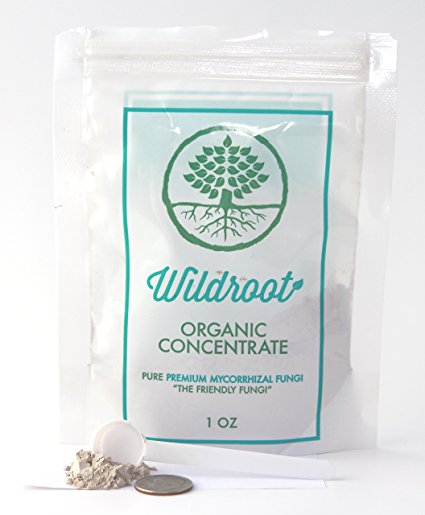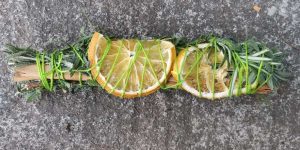It’s Winter, and many of us are starting to plan our Spring gardens.
When funds are limited, however–you may constantly be asking yourself,
“What’s the best thing to invest in?”

Should you shell out for concrete blocks to build raised beds, or spend money on creating a drip irrigation system?
Is a greenhouse worth the extra expense? What about shade cloth? Heated seed-starting mats? Better garden gloves and tools?
The list can seem endless, and when you just need to grow and eat your own food already, it’s overwhelming.
So maybe you don’t have money for everything. So what do you do?
Every pro gardener I’ve ever met who’s doing things the natural way, avoiding chemicals and pesticides, will tell you:
Great gardens start with great SOIL.
You can dig a trench and fill it with compost, and grow right in there. Heck, you can even buy bagged compost and make holes in the bag to plant your seeds, if you really need to simplify!
Growing plants that are naturally pest- and disease-resistant is easy–and it’s mainly a function of the quality of soil they are growing in. You’ll get better harvests, and more nutrients bite for bite, too.
One of the most pressing global problems is soil depletion–and we can each work on healing our own patch of land by mimicking the forest floor.
Nobody rakes up the leaves in the forest. Nobody removes the fungi and dead trees that fall down.
There’s a thick, rich layer of organic matter on the forest floor at all times. This layer acts like a sponge AND a blanket of mulch–it holds moisture in the soil and protects the delicate soil microbes and mycelium.
Healthy soil is alive with microscopic action!
So how do you amend your soil?

There’s so many ways–but for starters, use compost. You can buy bagged compost to get started, and after that, start making your own.
A newly started compost pile only takes about 18 days before it’s ready to use in your garden–and it’s an excellent way to recycle not only your kitchen scraps and chicken manure, but all those Amazon boxes, too. Here’s how to make great compost (instead of a rotting mess!).
- If you’re in an area that’s very dry, consider adding peat moss or coconut coir to your soil. It will be very dry and compacted at first. We use a plastic kiddie pool to soak ours in water thoroughly before we mix it into our beds.
- If you’re in an area with poor drainage and compacted, clay soil, you might decide to add sand to your soil, but really–compost alone will improve the drainage significantly, while adding crucial nutrients and microbes to the soil.
If you’re wanting maximum impact with minimal finances, COMPOST is king!
You might have heard that you need to test your soil before adding anything, but that’s NOT TRUE when it comes to compost. Adding organic matter is never a bad thing. You can’t use too much or cause any sort of harmful buildups (like you could with excess fertilizer, for example).
Think of compost like a fruit smoothie for your garden. You can’t “overdose” on fruits and veggies–because it’s just food. Compost is not like a “medicine” for your soil, but a diverse food source that will help it to thrive!
Other soil amendments worth looking at….
Once you’ve got your compost, two other things that you can add that will only help, and won’t cost a lot, are mycorrhizae and worm castings.
Mycorrhizae are fungal filaments in the soil, and they act as extensions of plants’ root systems. They increase the surface=absorbing area of roots up to 1000 times, which improves the ability of the plant to access nutrients in the soil. Several miles of fungal filaments can be present in less than a teaspoon of soil–so, a small bag of mycorrhizae will be enough to treat a very large area of your yard.
 Get your own premium mycorrhizal fungi here on Amazon!
Get your own premium mycorrhizal fungi here on Amazon!
Worm castings are a nice way of saying worm poop. This so-called “black gold” is the crème de la crème of natural soil amendments, and a very small amount goes a very long way in improving the fertility and friability of your soil. You can even have a mini warm farm in your kitchen or back porch, and get worm castings for free!
Now, a 6lb bag of worm castings can cost about $30, but you’ll only really need a cup per every 4 foot by 4 foot bed to make a difference.
 Get your own worm castings here on Amazon!
Get your own worm castings here on Amazon!
Don’t mix them in, just sprinkle on top of the soil surface, then cover with….
MULCH!
I just keep beating this drum, because it’s important. Mulch is crucial for soil health. It slows evaporation and prevents erosion caused by water runoff. It keeps the root zone warmer in winter and cooler in summer. It also protects the mycorrhizae and provides a home for beneficial insects.
Remember, we’re trying to mimic the forest floor in our gardens, and you’ll never see a forest floor that’s NOT heavily mulched.




